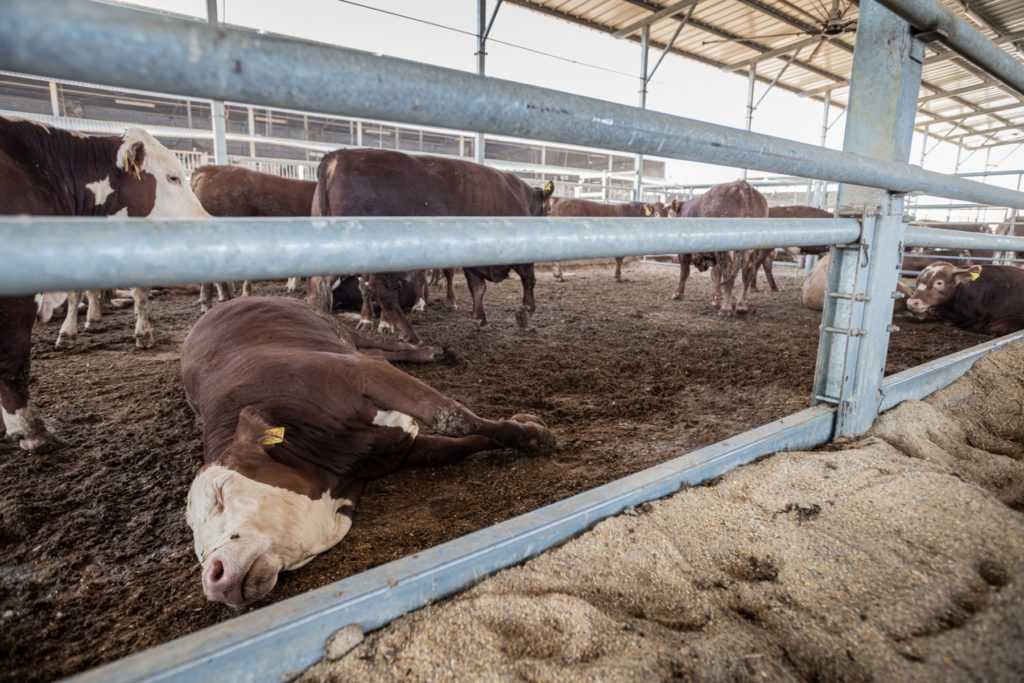Last week, Animal Wellness Action and other advocacy groups gained some clarity on the way forward for animal issues and the Farm bill, the broad-ranging package of agriculture-related policy issues that the Congress bundles together and considers once every five years or so.
Because of the broad reach of the legislation — including everything thing from nutrition standards for school lunches to trade-related issues to high-speed broadband access in rural areas — animal issues are often ignored by the reporters covering the bill. But their inattention doesn’t mean that the animal issues being settled — for good or bad — are not enormously consequential for animals and for the animal protection movement.
In May, the House passed its version of the Farm bill, and the Senate acted on its version in July. Earlier this month, the Senate names its key negotiators — known as “conferees” — and Majority Leader Mitch McConnell indicated he wants to see an agreement hammered out soon after Labor Day.
House and Senate conferees must produce a single compromise bill, and that won’t be easy because the House bill is highly partisan while the Senate bill already reflects a good deal of compromise between the parties. Animal issues are one area where the differences between the two bills are meaningful.
The Senate bill has a provision, known as the Pet and Women’s Safety Act (PAWS), to protect battered women and their pets by extending federal domestic violence protections to include pets and authorizes grant money to help domestic violence shelters accommodate pets. The House Farm bill does not have a similar provision, but the PAWS Act, as a free-standing measure, has nearly 250 House cosponsors — a solid majority of the House.
The House Farm bill does have a provision to clarify that the long-standing federal restrictions on dogfighting and cockfighting apply to U.S. territories. In short, this would allow for a crackdown on cockfighting and dogfighting in American Samoa, Guam, the Northern Marianas Islands, Puerto Rico, and the U.S. Virgin Islands. There is strong bipartisan support for this provision in the Senate, but an amendment, led by Senators Ron Wyden, D-Oregon, and Susan Collins, R-Maine, did not get a vote. The House approved an amendment, from Peter Roskam, R-Ill., and Earl Blumenauer, D-Oregon, by a commanding vote of 359 to 51.
Then there’s the King amendment, named for its author, the Rep. Steve King, R-Iowa, who is without question the most strident anti-animal welfare politician in America. His amendment, which is included only in the House bill, would nullify a raft of state laws regulating agriculture. It poses an enterprise threat to animal welfare protection, and it must be jettisoned when negotiators settle on a final bill and ask the House and Senate to vote on the final compromise bill.
There is one animal welfare policy issue where the House and Senate have an easy way forward. Both the House and Senate bills have provisions to ban the sale of dog and cat meat in the United States. Globally, this is the most extreme form of dog exploitation, with perhaps more than 30 million dogs butchered for their meat, mainly in Asia. As the global community, including the United States, urges China, South Korea, Vietnam, and other nations to shed this practice, it helps our credibility in making our arguments when we’ve enacted a no-dog-eating policy in the U.S.
Also earlier this month, veteran Senator Chuck Grassley, R-Iowa, and a member of the Agriculture Committee, endorsed the ban on the sale of dog and cat meat. Rep. King, true to form, voiced his opposition to the provision and said he hopes it is removed from the bill.
We’ll do our best not only to lobby for the right animal welfare protection policies in the Farm bill, but to keep you informed about our progress as the negotiations continue.
The Farm bill is not the only route to improving the lives of animals in Congress, but as “must pass” legislation, it is a critical vehicle for us. We’ll only get the right outcomes if animal advocates make their voices heard.
You can reach your lawmakers by calling the Congressional switchboard at 202-225-3121. And you can try to find them at a town hall or some other public event during their August recess.
